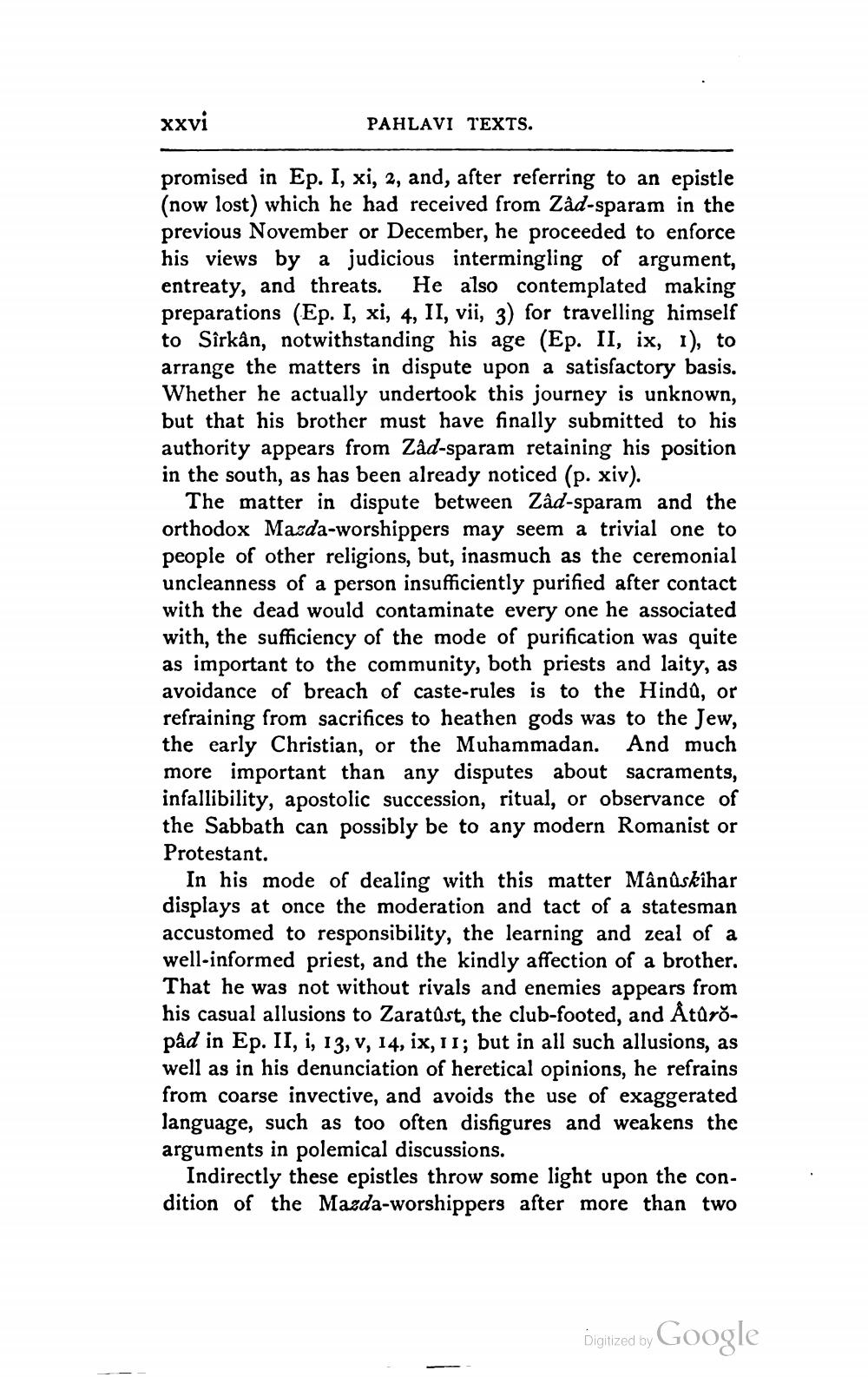________________
xxvi
PAHLAVI TEXTS.
promised in Ep. I, xi, 2, and, after referring to an epistle (now lost) which he had received from Zad-sparam in the previous November or December, he proceeded to enforce his views by a judicious intermingling of argument, entreaty, and threats. He also contemplated making preparations (Ep. I, xi, 4, II, vii, 3) for travelling himself to Sîrkân, notwithstanding his age (Ep. II, ix, 1), to arrange the matters in dispute upon a satisfactory basis. Whether he actually undertook this journey is unknown, but that his brother must have finally submitted to his authority appears from Zad-sparam retaining his position in the south, as has been already noticed (p. xiv).
The matter in dispute between Zâd-sparam and the orthodox Mazda-worshippers may seem a trivial one to people of other religions, but, inasmuch as the ceremonial uncleanness of a person insufficiently purified after contact with the dead would contaminate every one he associated with, the sufficiency of the mode of purification was quite as important to the community, both priests and laity, as avoidance of breach of caste-rules is to the Hindu, or refraining from sacrifices to heathen gods was to the Jew, the early Christian, or the Muhammadan. And much more important than any disputes about sacraments, infallibility, apostolic succession, ritual, or observance of the Sabbath can possibly be to any modern Romanist or Protestant.
In his mode of dealing with this matter Mânûskihar displays at once the moderation and tact of a statesman accustomed to responsibility, the learning and zeal of a well-informed priest, and the kindly affection of a brother. That he was not without rivals and enemies appears from his casual allusions to Zaratůst, the club-footed, and Åtūrð. pâd in Ep. II, i, 13, V, 14, ix, 11; but in all such allusions, as well as in his denunciation of heretical opinions, he refrains from coarse invective, and avoids the use of exaggerated language, such as too often disfigures and weakens the arguments in polemical discussions.
Indirectly these epistles throw some light upon the condition of the Mazda-worshippers after more than two
Digitized by Google




